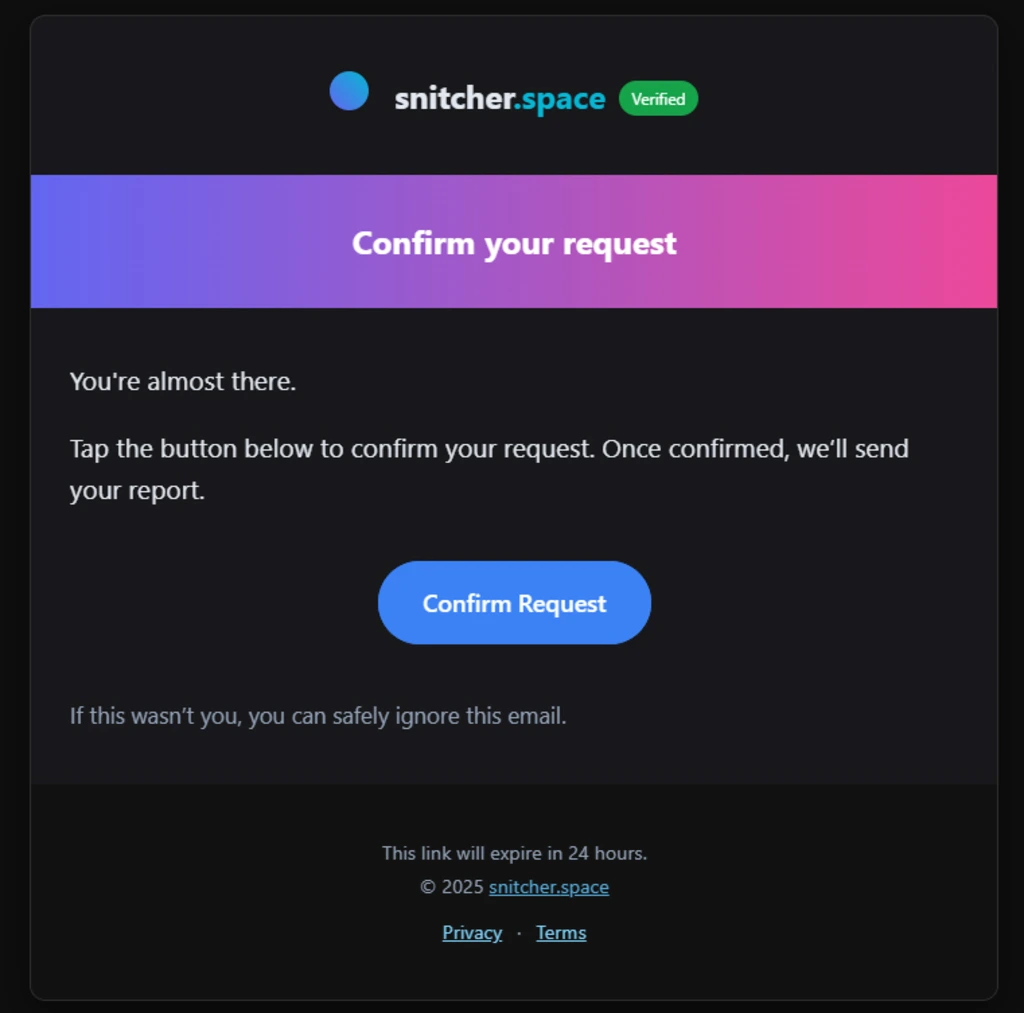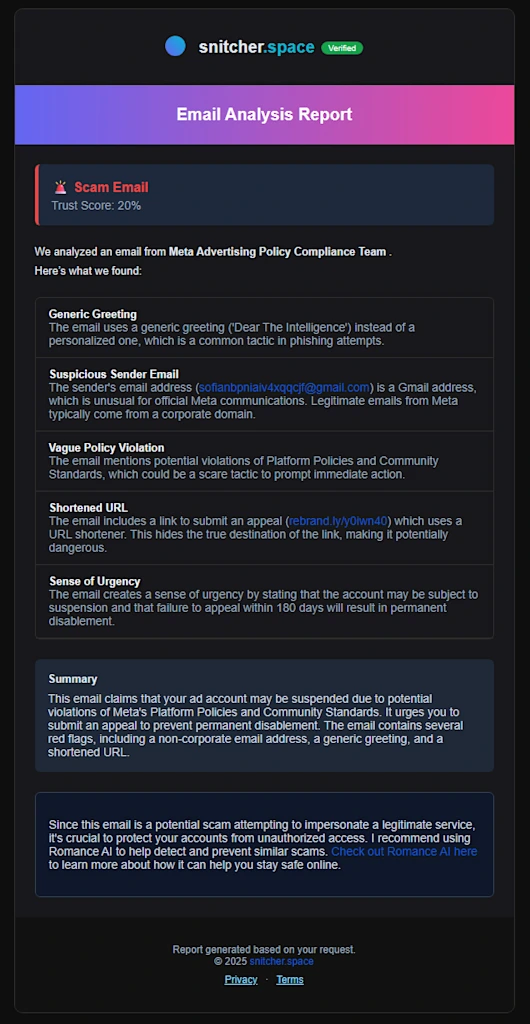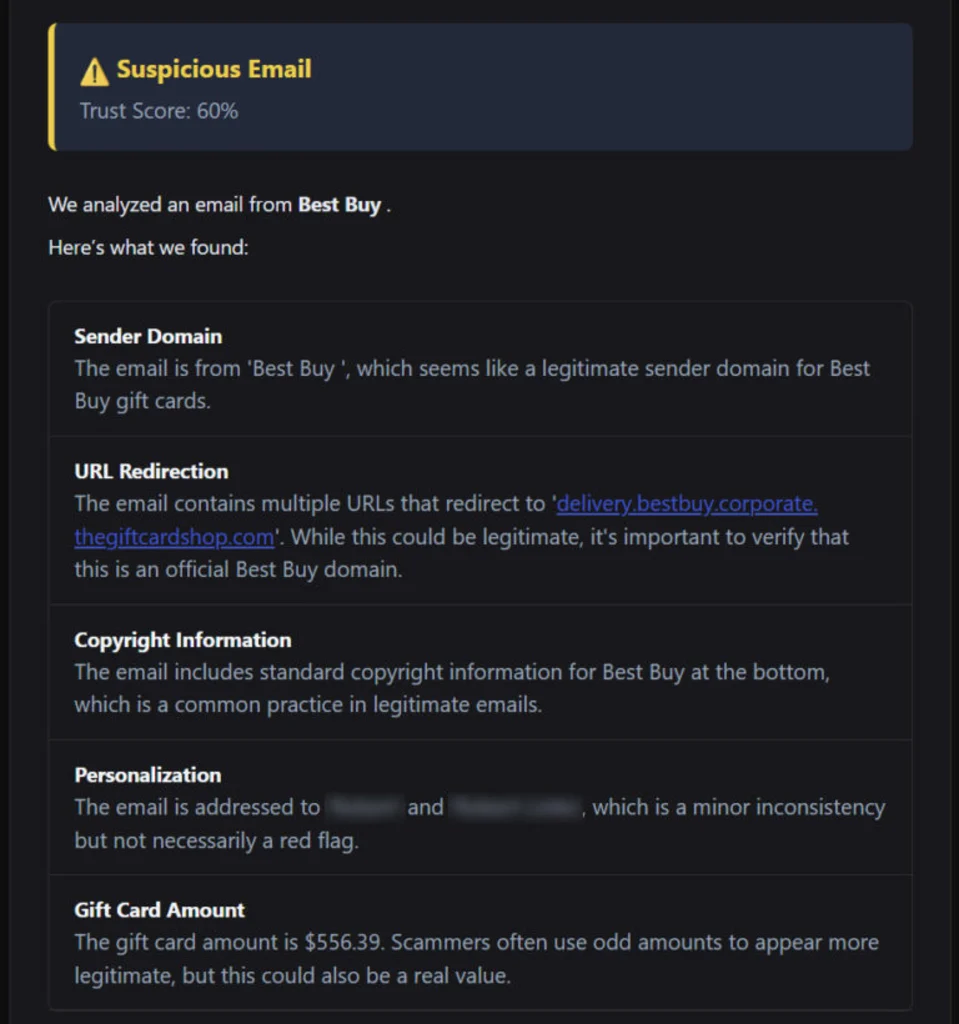I don’t know if you’ve noticed, but email scams are getting surprisingly sophisticated.
We’ve had a handful of instances here at The Intelligence International Headquarters where we’ve had to do a double-take—or occasionally even the rarely seen triple-take—and put an authentic-seeming email under the metaphorical microscope to confirm that it was actually something shady.
Spoiler alert: In each and every such instance, the email in question was, in fact, shady as all get-out. And at least a couple of times, we came dangerously close to missing it and falling for the trap.
That’s why I was so intrigued when I came across the tool I’m gonna share with you today. It’s an incredibly useful resource for identifying fishy emails and instantly confirming that something isn’t what it seems—and, in all likelihood, is out to try to scam you in some way. And it’s something Gmail, Outlook, and other mail providers aren’t even close to accomplishing with the same level of ease and sophistication.
This is one you’ll absolutely want to hang onto.
Be the first to find all sorts of little-known tech treasures with my free Cool Tools newsletter from The Intelligence. One useful new discovery in your inbox every Wednesday!
Email scams, exposed
The next time you see something potentially shifty in your inbox—any email that raises your eyebrows even a little and makes you wonder, “Could this possibly be legit?”—remember a crafty free service called Snitcher Space.
➜ Snitcher Space does just one thing and does it impressively well: It analyzes any email you send it, on the spot, and tells you if it seems likely to be a scam—along with exactly what red flags (if any) led to that verdict.
⌚ It takes roughly five minutes to use, though most of that is just waiting for the analysis to be completed. We’re really talkin’ maybe 10 seconds of actual active effort.
✅ Seriously—there isn’t much to it:
- The next time you come across a questionable-seeming email, just forward it to the address scan@snitcher.space—right from your inbox, using the regular ol’ forwarding command within whatever email app or service you prefer.
- The first time you do so, you’ll get a confirmation email that you’ll need to click once to confirm.

- Then, after a few minutes (or sometimes more, if the service is especially busy—as it has been since this recommendation first appeared in my newsletter), you’ll get an email back with the complete scam analysis.

What’s particularly helpful is that when Snitcher Space isn’t sure of something, it’ll tell you—and explain its logic so you can assess the situation for yourself. Here, for instance, is the result for an email one of us received recently where even Snitcher Space wasn’t 100% sure about the legitimacy:

It’s a rare and refreshing treat to see that level of candor at a time when AI chatbots everywhere default to doubling down and confidently lying when they don’t actually know something.
And it’s just one more reason why Snitcher Space is a tool well worth your while to keep around and have ready to serve you whenever the need arises.
- Snitcher Space is entirely web-based—no apps and nothing to download—though you’ll actually interact with it entirely over email, simply by forwarding something to scan@snitcher.space.
- It’s completely free to use. The company includes affiliate ads at the bottom of its analysis messages, which seems to be the main method of monetization at the moment.
- The service promises it deletes emails immediately after they’re scanned and doesn’t store or share any manner of personal info.
Ready for more smart tech treasures? Check out my free Cool Tools newsletter for an instant introduction to an incredible audio app—and another off-the-beaten-path gem every Wednesday!
Connectez-vous pour ajouter un commentaire
Autres messages de ce groupe

Forget Cowboy Carter or the Eras tour, the hottest ticket this year is for your favorite podcast.
Content creator tours sold nearly 500% more tickets this year compared to 20

In late July, the Trump administration released its long-awaited AI Action Pla

Matthew Williams has slept very little since he learned about Sacha Stone’s plan to build a “sovereign” micronation on 60 acres of land near his home in rural Tennessee. What began as a quic

Let’s be honest: Your phone is a jerk. A loud, demanding, little pocket-size jerk that never stops buzzing, dinging, and begging for your attention. It’s the first thing you see in the


Interest in virtual private networks (VPNs) has surged in America and Europe this year. Countries on both sides of the Atlantic have recently enacted new age-verification laws designed to prevent

Instagram’s new location-sharing Map feature is raising privacy concerns among some users, who worry their whereab
